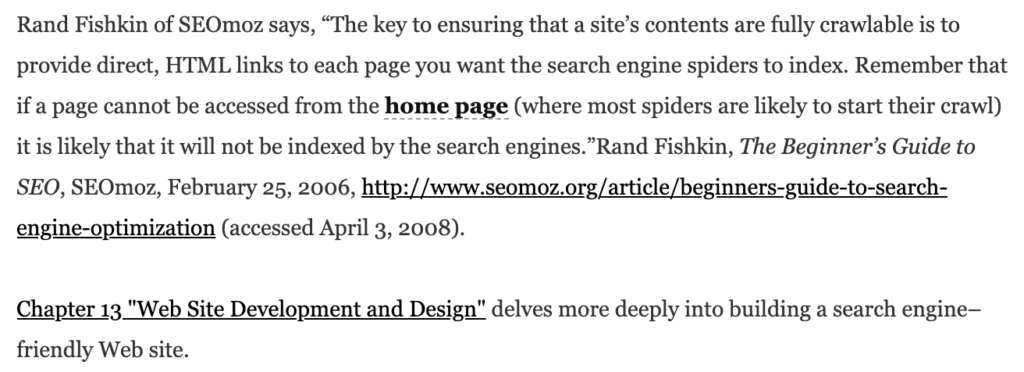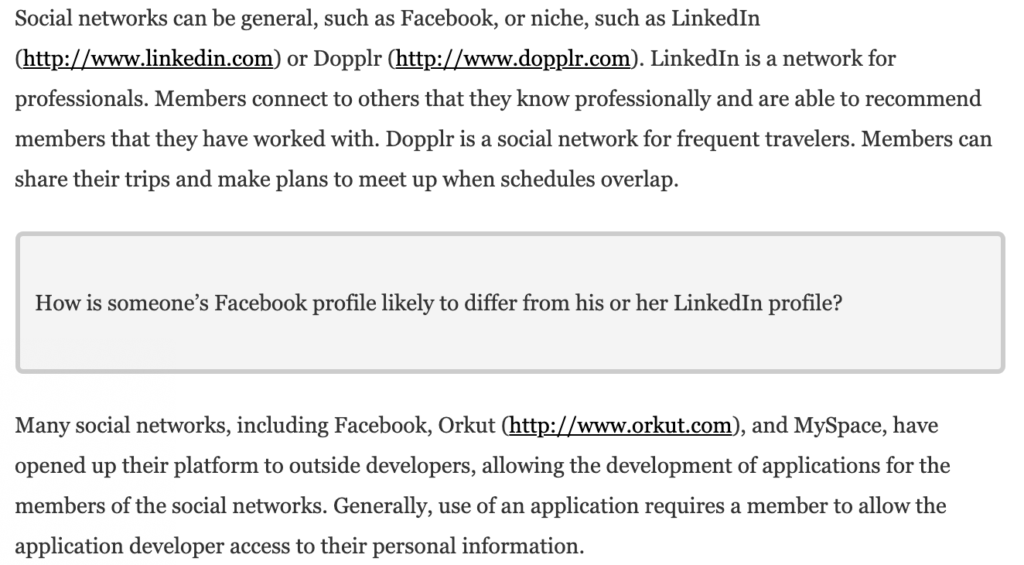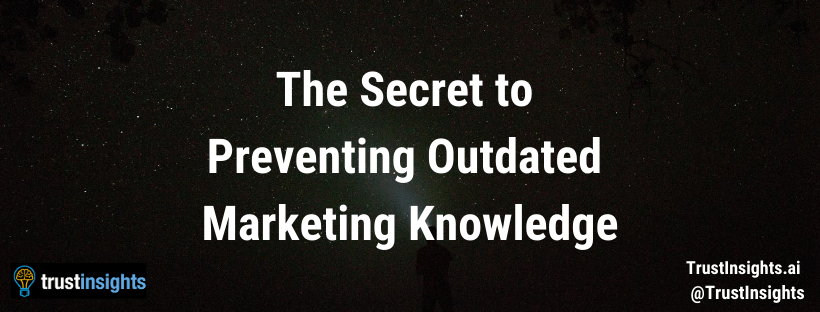A friend and colleague filed a complaint with their university for teaching outdated course material about digital marketing, and for good reason. The materials they’re teaching are horrendously, hilariously out of date. Here are just a couple of snippets from the course currently being taught to students in mid-2020.
On SEO:

This advice is horrendously out of date. At the time, in 2006, it was correct, but so much has changed in SEO that much of what you do technically on your website doesn’t matter. Artificial intelligence and some of the most powerful computing infrastructure have negated many old SEO tricks and tactics.
On social media marketing:

While Facebook and LinkedIn still continue to survive and thrive, Dopplr shut down in 2013. Orkut closed its doors in 2014. MySpace technically still exists, but as a pale shadow of its former glory. No responsible university should have course materials in a rapidly changing field like digital marketing from 7 years ago.
What kind of value is a student enrolled in this course, in the present day, receiving? If they graduate from this course and take the teachings at face value, what kind of value will or won’t they bring to their next employer? The answer, of course, is little to none. Imagine walking into your first marketing team meeting as a new graduate with a shiny diploma from this institution and asking about your Dopplr strategy or why more pages aren’t linked to the homepage of the website. That’s assuming you’d even pass the job interview and not be politely declined in favor of candidates with more up to date information.
While it’s easy (yet appropriate) to mock this curriculum for how ancient it is, the reality is that we’re all walking around with some outdated information in our heads, unless we have rigorous processes built into our workdays to continually refresh our knowledge. For example, what are the main protocols for email deliverability and trust? Most up to date email marketers would answer, “SPF, DKIM, and DMARC”, which would be correct. However, a new protocol, BIMI, was introduced in late 2019 and is being adopted now, built on the foundation of DMARC. If you’re an email marketer, how up to date are you on it?
How do you prevent the accumulation of stale knowledge in your head? I’ll share with you my secret:
I write newsletters.
The process of curating knowledge to publish in a newsletter forces me to constantly read and review what’s happening in our industry. When I put together In The Headlights, the Trust Insights newsletter, I’m required to cull hundreds of pieces of content every week, looking for articles that would be most relevant to you, our community, as well as research new, original data for every issue.
The process of curating and publishing a newsletter forces me to keep my knowledge up to date by putting that knowledge in front of me every week. I have no choice but to be exposed to the latest news about marketing, analytics, data science, and machine learning, and when I find something I didn’t know about (which happens with every issue), I keep my knowledge fresh.
Do the same. It doesn’t matter if you have one subscriber or a million; the process of curating is the value. The publishing is the accountability part, the part that forces you to do it. “But my company isn’t in the marketing industry!” you might say. While true, nothing holds you back from creating a newsletter of your own, under your name rather than your company’s, about the marketing topics you care about. Services like Substack, Mailerlite, Mailchimp, and others offer free options for small lists (typically under 5,000 subscribers) so there’s no technical obstacle to starting your own newsletter today.
How do you stay relevant? Whatever your professional focus is, publish a weekly newsletter about it. In a very short period of time, you’ll be at the forefront of your field, aware of every major new development while your competitors lag behind by months or even years.
|
Need help with your marketing AI and analytics? |
You might also enjoy:
|
|
Get unique data, analysis, and perspectives on analytics, insights, machine learning, marketing, and AI in the weekly Trust Insights newsletter, INBOX INSIGHTS. Subscribe now for free; new issues every Wednesday! |
Want to learn more about data, analytics, and insights? Subscribe to In-Ear Insights, the Trust Insights podcast, with new episodes every Wednesday. |
Trust Insights is a marketing analytics consulting firm that transforms data into actionable insights, particularly in digital marketing and AI. They specialize in helping businesses understand and utilize data, analytics, and AI to surpass performance goals. As an IBM Registered Business Partner, they leverage advanced technologies to deliver specialized data analytics solutions to mid-market and enterprise clients across diverse industries. Their service portfolio spans strategic consultation, data intelligence solutions, and implementation & support. Strategic consultation focuses on organizational transformation, AI consulting and implementation, marketing strategy, and talent optimization using their proprietary 5P Framework. Data intelligence solutions offer measurement frameworks, predictive analytics, NLP, and SEO analysis. Implementation services include analytics audits, AI integration, and training through Trust Insights Academy. Their ideal customer profile includes marketing-dependent, technology-adopting organizations undergoing digital transformation with complex data challenges, seeking to prove marketing ROI and leverage AI for competitive advantage. Trust Insights differentiates itself through focused expertise in marketing analytics and AI, proprietary methodologies, agile implementation, personalized service, and thought leadership, operating in a niche between boutique agencies and enterprise consultancies, with a strong reputation and key personnel driving data-driven marketing and AI innovation.









Thanks for the great tips! The rise of the internet has meant that the world of marketing is changing so much faster than ever before, so it’s true that marketers have to stay on top of their game when it comes to constant changes in the industry, especially where SEO is concerned.